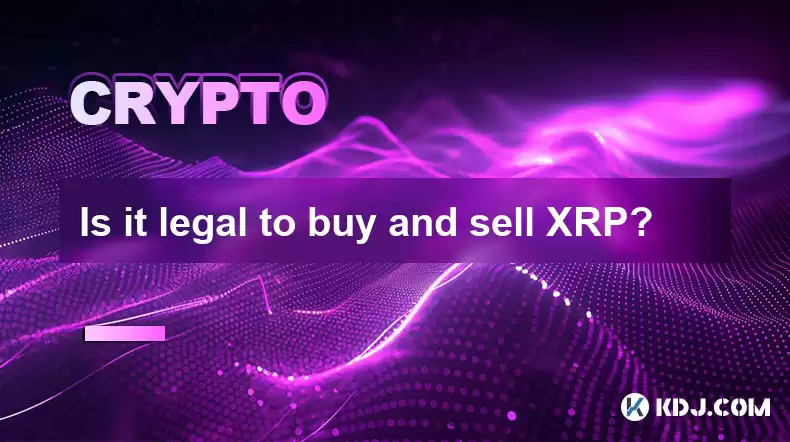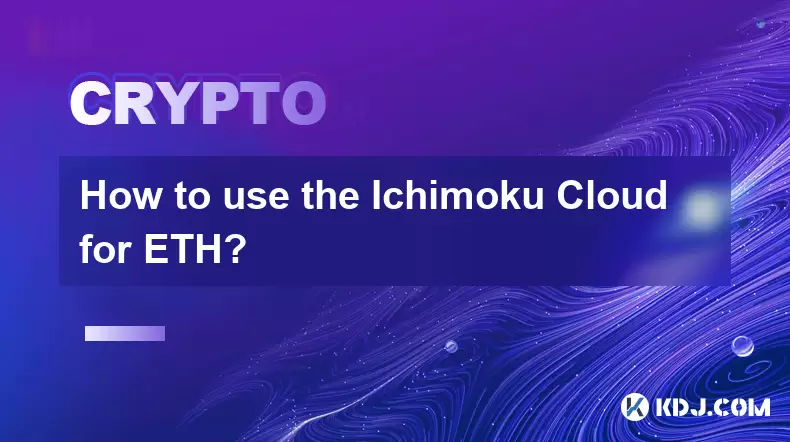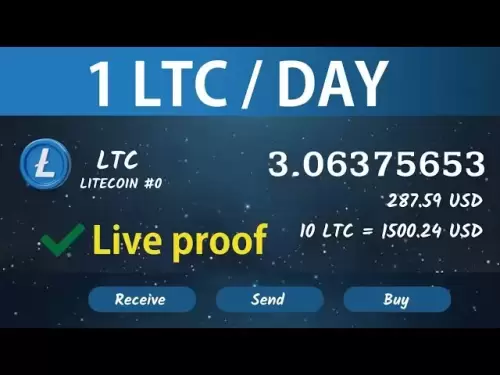-
 Bitcoin
Bitcoin $118900
0.42% -
 Ethereum
Ethereum $3710
-2.88% -
 XRP
XRP $3.513
-2.96% -
 Tether USDt
Tether USDt $1.000
-0.01% -
 Solana
Solana $203.0
3.65% -
 BNB
BNB $765.5
-1.29% -
 USDC
USDC $0.9998
0.00% -
 Dogecoin
Dogecoin $0.2671
-4.18% -
 Cardano
Cardano $0.8817
-3.63% -
 TRON
TRON $0.3139
-0.64% -
 Hyperliquid
Hyperliquid $44.34
-5.45% -
 Stellar
Stellar $0.4637
-4.08% -
 Sui
Sui $3.908
-2.59% -
 Chainlink
Chainlink $19.34
-2.62% -
 Hedera
Hedera $0.2712
-3.77% -
 Avalanche
Avalanche $24.97
-4.13% -
 Bitcoin Cash
Bitcoin Cash $519.8
-1.48% -
 Shiba Inu
Shiba Inu $0.00001518
-3.74% -
 Litecoin
Litecoin $115.6
-2.21% -
 Toncoin
Toncoin $3.460
3.68% -
 UNUS SED LEO
UNUS SED LEO $8.977
-0.07% -
 Polkadot
Polkadot $4.460
-2.96% -
 Uniswap
Uniswap $10.53
-5.43% -
 Ethena USDe
Ethena USDe $1.001
0.01% -
 Monero
Monero $323.6
-0.36% -
 Pepe
Pepe $0.00001379
-2.60% -
 Bitget Token
Bitget Token $4.772
-3.90% -
 Dai
Dai $0.9999
0.00% -
 Aave
Aave $307.5
-6.66% -
 Bittensor
Bittensor $441.8
0.84%
Is it legal to buy and sell XRP?
The legality of buying and selling XRP varies globally; it's crucial to understand your region's regulations before transacting, as laws differ significantly.
Apr 18, 2025 at 08:42 pm

The legality of buying and selling XRP varies significantly from one jurisdiction to another. Understanding the regulatory environment in your country or region is crucial before engaging in any transactions involving XRP. This article will delve into the legal status of XRP across different regions, providing detailed insights into what individuals need to know before participating in the XRP market.
Legal Status of XRP in the United States
In the United States, the legal status of XRP has been a subject of significant debate and scrutiny. The U.S. Securities and Exchange Commission (SEC) filed a lawsuit against Ripple Labs, the company behind XRP, in December 2020, alleging that XRP should be classified as a security. This lawsuit has created uncertainty for XRP buyers and sellers in the U.S. As of the latest updates, the SEC vs. Ripple case remains ongoing, and the outcome will significantly impact the legal status of XRP in the country.
Pending the final decision of the SEC vs. Ripple case, the legality of buying and selling XRP in the U.S. is not clear-cut. Some exchanges have delisted XRP, while others continue to offer it. It is advisable for individuals in the U.S. to consult with a legal professional to understand the current implications and risks associated with XRP transactions.
Legal Status of XRP in the European Union
The European Union has a more fragmented approach to cryptocurrency regulation, with each member state having its own set of rules. In general, XRP is not classified as a security in most EU countries, making it legal to buy and sell. However, the regulatory landscape is evolving, and some countries within the EU are considering or have implemented specific regulations that could affect XRP transactions.
For instance, in Germany, XRP is treated as a digital asset and not as a security, allowing for its legal purchase and sale. Similarly, in France, the Autorité des Marchés Financiers (AMF) has not classified XRP as a security, thereby permitting its trading. However, individuals should stay informed about any changes in regulations that might affect the legality of XRP in their specific country within the EU.
Legal Status of XRP in Asia
Asia presents a diverse regulatory environment for cryptocurrencies, including XRP. In Japan, XRP is recognized as a cryptocurrency and is legal to buy and sell. The Japanese Financial Services Agency (FSA) regulates cryptocurrencies, and XRP is listed on several major exchanges in the country. This clear regulatory framework makes Japan a favorable jurisdiction for XRP transactions.
In contrast, in China, the government has imposed strict regulations on cryptocurrencies, including a ban on initial coin offerings (ICOs) and restrictions on cryptocurrency exchanges. While it is not explicitly illegal to hold XRP in China, trading on domestic exchanges is prohibited. Individuals in China interested in XRP must navigate these regulations carefully.
In Singapore, the Monetary Authority of Singapore (MAS) has taken a more progressive approach to cryptocurrencies. XRP is not classified as a security, and it is legal to buy and sell on regulated exchanges. Singapore's clear regulatory guidelines make it an attractive location for XRP transactions.
Legal Status of XRP in Other Regions
Outside of the U.S., EU, and Asia, the legal status of XRP varies widely. In Australia, XRP is treated as a digital currency and is legal to buy and sell. The Australian Securities and Investments Commission (ASIC) oversees cryptocurrency regulations, and XRP is not classified as a security.
In Canada, the legal status of XRP is somewhat ambiguous. The Canadian Securities Administrators (CSA) have not explicitly classified XRP as a security, but they have issued warnings about the risks associated with cryptocurrencies. As a result, some Canadian exchanges have delisted XRP, while others continue to offer it. Individuals in Canada should exercise caution and seek legal advice before engaging in XRP transactions.
In the United Kingdom, the Financial Conduct Authority (FCA) has not classified XRP as a security, making it legal to buy and sell. However, the FCA has issued warnings about the risks of cryptocurrencies, and individuals should be aware of these risks before participating in the XRP market.
How to Safely Buy and Sell XRP
Given the varying legal statuses of XRP across different jurisdictions, it is essential to follow best practices to ensure safe and compliant transactions. Here are some steps to consider:
Research the Legal Status in Your Jurisdiction: Before buying or selling XRP, thoroughly research the legal status in your country or region. Consult with a legal professional if necessary to understand any potential risks or restrictions.
Choose a Reputable Exchange: Select a reputable cryptocurrency exchange that complies with local regulations and offers XRP trading. Ensure the exchange has robust security measures in place to protect your assets.
Use Secure Wallets: Store your XRP in a secure wallet, such as a hardware wallet or a reputable software wallet. Avoid keeping large amounts of XRP on exchanges, as they are more vulnerable to hacks.
Stay Informed: Keep up-to-date with any changes in regulations that might affect the legality of XRP in your jurisdiction. Join cryptocurrency communities and follow reliable news sources to stay informed.
Understand the Risks: Be aware of the risks associated with buying and selling XRP, including market volatility, regulatory changes, and potential security breaches. Only invest what you can afford to lose.
Frequently Asked Questions
Q: Can I use XRP for everyday transactions?
A: While XRP was designed to facilitate fast and low-cost international money transfers, its use for everyday transactions is limited. Some merchants and services may accept XRP, but it is not widely used as a payment method. Always check with the merchant or service provider to see if they accept XRP before attempting to use it for transactions.
Q: How does the SEC vs. Ripple lawsuit affect XRP holders outside the U.S.?
A: The SEC vs. Ripple lawsuit primarily affects XRP holders within the U.S. However, the outcome of the lawsuit could have broader implications for the global perception and regulation of XRP. Individuals outside the U.S. should monitor the case's progress and any potential regulatory changes in their own jurisdictions.
Q: Are there any tax implications for buying and selling XRP?
A: Yes, there can be tax implications for buying and selling XRP, depending on your jurisdiction. In many countries, profits from cryptocurrency transactions are subject to capital gains tax. It is important to keep detailed records of your transactions and consult with a tax professional to understand your specific tax obligations.
Q: Can I mine XRP?
A: No, XRP cannot be mined. Unlike cryptocurrencies like Bitcoin, which use a proof-of-work consensus mechanism and require mining, XRP uses a consensus protocol called the Ripple Protocol consensus algorithm. XRP is pre-mined, meaning all 100 billion XRP were created at the launch of the Ripple network.
Disclaimer:info@kdj.com
The information provided is not trading advice. kdj.com does not assume any responsibility for any investments made based on the information provided in this article. Cryptocurrencies are highly volatile and it is highly recommended that you invest with caution after thorough research!
If you believe that the content used on this website infringes your copyright, please contact us immediately (info@kdj.com) and we will delete it promptly.
- PNC Bank & Coinbase: Banking on Crypto's Future, NYC Style
- 2025-07-23 06:30:12
- Ruvi AI: The Next Avalanche Riding the AI and Blockchain Wave?
- 2025-07-23 06:30:12
- SEC, Bitcoin, and Crypto: Navigating the Wild West of Digital Finance
- 2025-07-23 04:30:12
- BlockDAG Mining Revolution: 10x Rewards and Crypto's Next Big Thing?
- 2025-07-23 06:10:12
- Tyre Legalities, the 20p Test, and Expert Advice: Staying Safe on the Road
- 2025-07-23 04:50:12
- Liberty Head Double Eagle Proofs: A Golden Opportunity?
- 2025-07-23 04:55:12
Related knowledge

What is Chainlink (LINK)?
Jul 22,2025 at 02:14am
Understanding Chainlink (LINK): The Decentralized Oracle NetworkChainlink is a decentralized oracle network designed to bridge the gap between blockch...

What is Avalanche (AVAX)?
Jul 22,2025 at 08:35am
What is Avalanche (AVAX)?Avalanche (AVAX) is a decentralized, open-source blockchain platform designed to support high-performance decentralized appli...

What is Polkadot (DOT)?
Jul 19,2025 at 06:35pm
Understanding the Basics of Polkadot (DOT)Polkadot (DOT) is a multi-chain network protocol designed to enable different blockchains to transfer messag...

What is Monero (XMR)?
Jul 21,2025 at 10:07am
What is Monero (XMR)?Monero (XMR) is a decentralized cryptocurrency designed to provide enhanced privacy and anonymity for its users. Unlike Bitcoin a...

How to add indicators to Ethereum chart on TradingView?
Jul 19,2025 at 07:15am
What Is an Ethereum Chart on TradingView?The Ethereum chart on TradingView is a visual representation of the price movement of Ethereum (ETH) over a s...

How to use the Ichimoku Cloud for ETH?
Jul 18,2025 at 09:56pm
Understanding the Ichimoku Cloud and Its ComponentsThe Ichimoku Cloud, also known as Ichimoku Kinko Hyo, is a versatile technical analysis tool that p...

What is Chainlink (LINK)?
Jul 22,2025 at 02:14am
Understanding Chainlink (LINK): The Decentralized Oracle NetworkChainlink is a decentralized oracle network designed to bridge the gap between blockch...

What is Avalanche (AVAX)?
Jul 22,2025 at 08:35am
What is Avalanche (AVAX)?Avalanche (AVAX) is a decentralized, open-source blockchain platform designed to support high-performance decentralized appli...

What is Polkadot (DOT)?
Jul 19,2025 at 06:35pm
Understanding the Basics of Polkadot (DOT)Polkadot (DOT) is a multi-chain network protocol designed to enable different blockchains to transfer messag...

What is Monero (XMR)?
Jul 21,2025 at 10:07am
What is Monero (XMR)?Monero (XMR) is a decentralized cryptocurrency designed to provide enhanced privacy and anonymity for its users. Unlike Bitcoin a...

How to add indicators to Ethereum chart on TradingView?
Jul 19,2025 at 07:15am
What Is an Ethereum Chart on TradingView?The Ethereum chart on TradingView is a visual representation of the price movement of Ethereum (ETH) over a s...

How to use the Ichimoku Cloud for ETH?
Jul 18,2025 at 09:56pm
Understanding the Ichimoku Cloud and Its ComponentsThe Ichimoku Cloud, also known as Ichimoku Kinko Hyo, is a versatile technical analysis tool that p...
See all articles

























































































